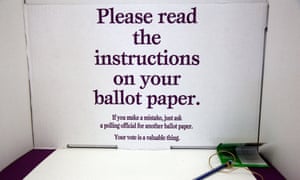Extract from The Guardian
ALP, Greens and five independents form bloc to limit government’s ability to recall the Senate before 10 May


Labor and the crossbench have passed a motion making it harder for
the government to call a double-dissolution election by limiting its
ability to recall the Senate.
On Friday afternoon the government senator leader, Mitch Fifield, proposed a motion that the Senate rise until Tuesday 10 May “or such other time as may be fixed by the president”.
Labor, the Greens and five independent and minor party senators joined forces to pass an amendment to that, saying the president or deputy president could recall the Senate only with the “absolute majority of senators where the leader or deputy leader of a party in the Senate can concur on behalf of every senator in that party”.
The amendment was passed 31 votes to 22.
The last day the government can call a double-dissolution election, which is when both houses are dissolved and all members and senators seek re-election, is 11 May. That is one day after the federal budget is due be handed down, giving the government very little time to pass crucial money bills.
The tight timing led to speculation the government would recall the House and Senate for an early budget.
Both Labor and the Greens have previously shot down this notion for the Senate, but as the Coalition has the majority in the House of Representatives, there is nothing stopping the government from recalling the lower house to convene an early budget.
The Senate passed legislation on Senate voting changes on Friday, after a mammoth 40-hour debate. The changes make it harder for minor parties and independents to be elected.
The changes need to be in place for at least three months before an election, paving the way for the government to use them in a July double dissolution.
On Friday afternoon the government senator leader, Mitch Fifield, proposed a motion that the Senate rise until Tuesday 10 May “or such other time as may be fixed by the president”.
Labor, the Greens and five independent and minor party senators joined forces to pass an amendment to that, saying the president or deputy president could recall the Senate only with the “absolute majority of senators where the leader or deputy leader of a party in the Senate can concur on behalf of every senator in that party”.
The amendment was passed 31 votes to 22.
The last day the government can call a double-dissolution election, which is when both houses are dissolved and all members and senators seek re-election, is 11 May. That is one day after the federal budget is due be handed down, giving the government very little time to pass crucial money bills.
The tight timing led to speculation the government would recall the House and Senate for an early budget.
Both Labor and the Greens have previously shot down this notion for the Senate, but as the Coalition has the majority in the House of Representatives, there is nothing stopping the government from recalling the lower house to convene an early budget.
The Senate passed legislation on Senate voting changes on Friday, after a mammoth 40-hour debate. The changes make it harder for minor parties and independents to be elected.
The changes need to be in place for at least three months before an election, paving the way for the government to use them in a July double dissolution.
No comments:
Post a Comment